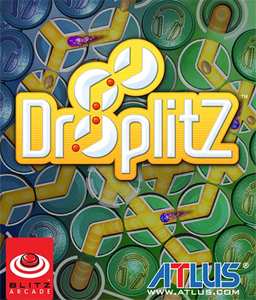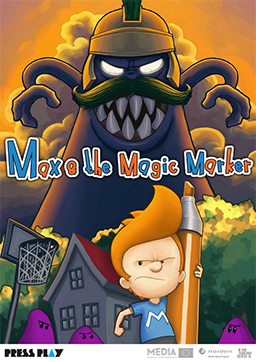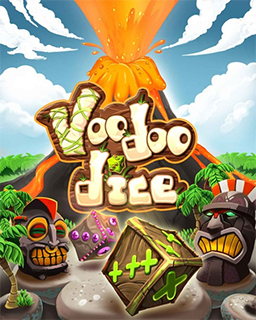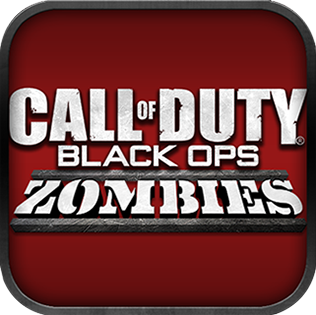
Need for Speed: Porsche Unleashed, released as Need for Speed: Porsche 2000 in Europe and Need for Speed: Porsche in Latin America and Germany, is a 2000 racing video game. It is the fifth installment in the Need for Speed series. Unlike other NFS titles, Porsche Unleashed centers on racing Porsche sports cars, with models ranging from years 1950 to 2000.

4x4 Evo 2, also known as 4x4 Evolution 2, is a racing video game developed by Terminal Reality for the PlayStation 2, Xbox, GameCube, Microsoft Windows, and Mac. It is the sequel to 4x4 Evolution and features more trucks and more racing tracks than the original game.

Zen Bound is a puzzle game for the iOS, Android, and Maemo platforms, developed by Secret Exit. The game was announced in September 2008 via the company's discussion board, and officially released via the App Store on February 24, 2009, and via Ovi Store on June 16, 2010. An Android port was released on March 19, 2012. The game has received press attention for its unique gameplay. A lite version of the game was also released for free which featured 2 levels of the game. A sequel, Zen Bound 2, was released for iOS on April 1, 2010, for Steam on November 16, 2010, and for the Nintendo Switch in Europe and North America on May 24, 2018.

Droplitz is a puzzle video game developed by Blitz Arcade and published by Atlus USA. It was released for Xbox Live Arcade, PlayStation Network, Microsoft Windows and iOS in June 2009. A sequel called Droplitz Delight was released for Windows Phone in May 2012.

Professor Heinz Wolff's Gravity is a puzzle video game released on Wii, DS, Windows, iOS, and Android formats. It is published by Deep Silver and developed by Extra Mile Studios. The game is named after Heinz Wolff, while the iOS and Android versions are named after Isaac Newton.

Alien Breed: Evolution is an isometric shooter game in Team17's Alien Breed series and is the first title in the series since 1996. It was released for the Xbox 360 on 16 December 2009. An updated version called Alien Breed: Impact was released for Microsoft Windows and PlayStation 3 in the following year. It was followed by Alien Breed 2: Assault released in September 2010.

Max & the Magic Marker is a platform game released for WiiWare, Nintendo DS, PlayStation 3, Mac OS X, Microsoft Windows, iOS, and Windows Mobile. It was developed by Press Play. The Wii version was ported to Japan and published by Marvelous Entertainment under the name Rakugaki Hero on April 13, 2010.

8-Bit Rebellion! is a massively multiplayer online, and single player, video game released and based on the American rock band, Linkin Park for iOS.

Voodoo Dice is an action puzzle game produced by French studio Exkee and distributed by Ubisoft on Xbox Live Arcade, PlayStation Network, and WiiWare. In Voodoo Dice, the player rolls dice through a path containing barriers, switches, conveyors and trap doors. The game consists of 60 single-player levels and 20 multiplayer levels. There are four multiplayer play modes. In single-player mode, the player must finish each level within a set time limit in order to win achievements.

Carnivores: Ice Age is a first-person shooter video game developed by Action Forms and published by WizardWorks for Microsoft Windows. It is the third game in the Carnivores series. Unlike the previous games, in which the player must hunt dinosaurs, Carnivores: Ice Age allows the player to stalk large Cenozoic animals such as mammoths and saber-toothed cats. In 2011, the game was ported to iOS and Android devices by Tatem Games, and to PlayStation Portable by WizardWorks.

Call of Duty: World at War – Zombies was a first-person shooter video game developed by Ideaworks Game Studio, and published by Activision for iOS. It was a spin-off of the Call of Duty series, and based on the Zombies mode of Call of Duty: World at War. The game was released worldwide for iPhone on November 16, 2009, and for iPad on April 1, 2010. The game allowed for multiplayer cooperative gameplay locally via an ad hoc Wi-Fi or Bluetooth network, or globally via the internet. It also came with the three other maps, Verrückt, Shi No Numa, and Der Riese. A sequel to the game, Call of Duty: Black Ops – Zombies, has been published by Activision.

Plants vs. Zombies is a 2009 tower defense video game developed and published by PopCap Games. First released for Windows and Mac OS X, the game has since been ported to consoles, handhelds, and mobile devices. The player takes the role of a homeowner amid a zombie apocalypse. As a horde of zombies approaches along several parallel lanes, the player must defend their home by placing plants, which fire projectiles at the zombies or otherwise detrimentally affect them. The player collects a currency called sun to buy plants. If a zombie happens to make it to the house on any lane, the player loses the level.

Call of Duty: Black Ops – Zombies is a spin-off game of the Call of Duty series' Zombies mode and the sequel to Call of Duty: World at War – Zombies. Developed by Ideaworks Game Studio and published by Activision for the iOS and Android platforms, it was launched in select countries on December 1, 2011.

Space Hulk is a turn-based tactics video game developed by Danish studio Full Control. It is based on the tabletop game of the same name by Games Workshop. It features the Blood Angels Chapter of the Space Marines battling grotesque aliens known as Genestealers. A follow-up game, Space Hulk: Ascension, was released in 2014.

Pix'n Love Rush is a platform game released for iOS, PlayStation Portable, and Ouya in 2010-2013. An updated version called Pix'n Love Rush DX was released only for iOS on December 16, 2010.

Leviathan: Warships is a video game developed by Pieces Interactive and published by Paradox Interactive in 2013.
Who's That Flying?! is a shooter game developed by Mediatonic and Beeline Interactive for PlayStation Portable in 2010, and for Microsoft Windows and iOS in 2011.
Spirits is a puzzle video game developed and published by Spaces of Play for iOS in 2010, and for Microsoft Windows, OS X, Android, and Linux in 2012. The game has a nature similar to Lemmings in that the player has to guide the spirits of fallen leaves by changing how the wind blows or rebuilding ground as autumn is quickly approaching.

Braveheart is an action role-playing game developed and published by then-Russian video game developer Gaijin Entertainment for iOS in 2010.

















